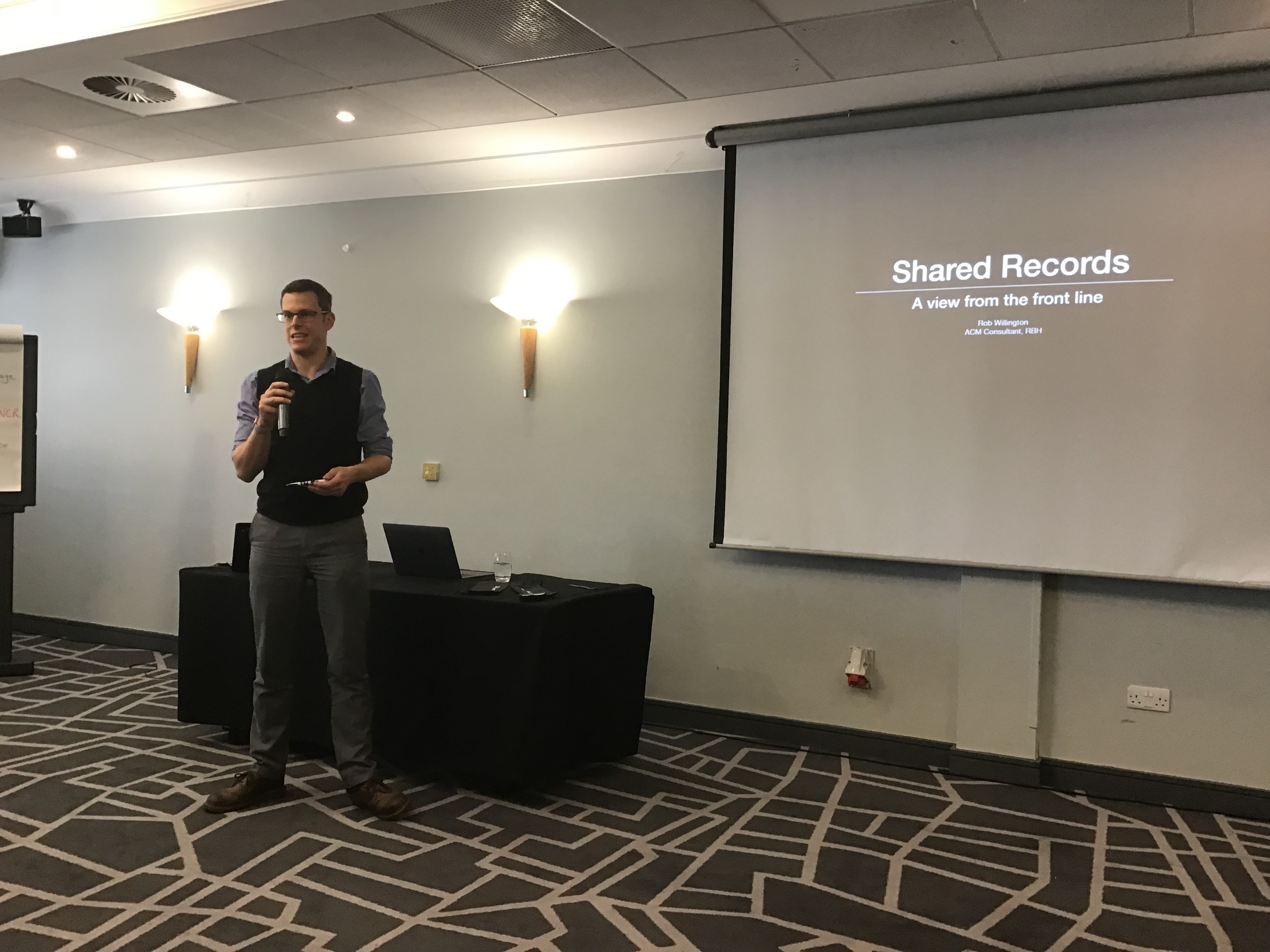
“Nothing is so painful to the human mind as a great and sudden change,” is a famous quote from author Mary Shelley.
Royal Bournemouth and Christchurch hospital consultant Dr Rob Willington used this to highlight some of the concerns colleagues may have over the introduction of computerised shared health and social care records.
Speaking at the recent Wessex Care Records engagement event held on 7th March 2019, Rob said some colleagues may have a fear of change and what might go wrong in a new system – particularly if it was being enforced.
Rob said there was still too much reliance on paper-based systems, adding there were also many different computer programmes within the hospital, which complicated issues. The alternative is to embrace the change that comes with the Dorset Care Record, which Rob strongly encouraged.
The problem with the current system in hospitals, he argued, was that information is siloed, was fragmented and took a long time to put together, making it possible to be missed. These issues were vital given the recommendation time of an average of 15 minutes for an appointment with a clinician.
Written reports, he argued, were fallible. Writing was often only partially legible, which could lead to misdiagnosis and other mistakes.
Rob referenced an earlier speaker, John Farenden, who powerfully referred to seven individuals whose deaths were sadly linked to lack of information sharing on their coroner’s reports. Rob commented:
“I don’t have a landmark case where I’ve saved a life through an electronic record but that doesn’t reduce the legitimacy of the shared care record.”
Some of the benefits already seen through the DCR are, he said:
• Reduce duplication of work
• Less time to bring everything together
• Increase visibility of information so reduction in risk
“Yes they may seem like marginal gains but…. .we don’t remember when we drive safely for many miles on a highway but we do remember when we nearly have an accident or do so,” he added.
Rob has found that increased visibility of blood result trends can help diagnosis with regards to Acute Kidney Injury (AKI) and Chronic Kidney Disease (CKD). Increased visibility of consultations at other hospitals such as Poole and Dorset County Hospital is already happening through the Dorset Care Record and he hopes there to be similar openness with Lymington and Southampton Hospitals in Hampshire, which is set to be taken forward through the Wessex Care Record.
Rob’s take home message was clear: “Shared records have the great potential to reduce harm and improve care.”


